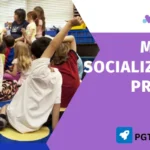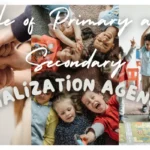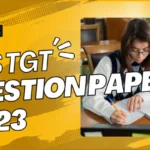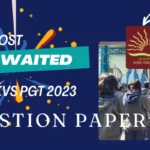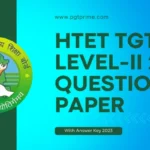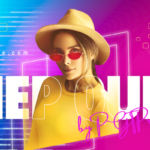An incredible people with an astounding understanding of society and its norms. Educational Philosopher are well-versed in the importance of education and its profound impact on society. They keep us surprised with their findings and theories. They are the pedagogical prophets.
Who is an Educational Philosopher?
These are the people who shaped our educational institutions in and around the globe. No doubt, humans are the most notorious living beings and their behavior depends mostly on upbringing, culture, environment, rituals, beliefs, and of course Education.
Unbelievably, Educational philosophers figure out these intriguing connections between them and encourage educational institutions to practice, ultimately nurturing and shaping young minds.
😜Think back to your school days or now in college. Who are the philosophers you’ve learned about, and what are their ideas which moved you?
Found it overwhelming, Then keep going and you will find previous year’s questions based on this Educational Philosopher.
Educational Philosophers and their Ideas/Philosophies:
Although there are hundreds of educational philosophers and millions of theories. However, their core concepts are based on a handful of ideas/philosophies. We tried to accumulate these ideas in tabular form which gives us insights into their philosophies.
| S.No. | Educational Philosopher | Ideas/Philosophies |
|---|---|---|
| 1 | Swami Vivekananda | • Self-realization, Reliance, and Mental power. • Emphasis on Vedanta, Yoga, and Meditation. • Practical application of knowledge in solving real-world problems. |
| 2 | Rabindranath Tagore | • Ahimsa (non-violence) & Advita (Upanishads). • Aesthetic development of the senses. • Nature is a potent teacher to Students. • Environmentalism, Humanism, and Nationalism. |
| 3 | Mahatma Gandhi | • Self-Reliance and Practical Learning (Vocational Training). • Self-sufficiency and realization. • Simple and basic education. • Character Building and Moral Education. |
| 4 | Jiddu Krishnamurti | • Natural and Child-Centered Approach. • Freedom from Conditioning. • Non-Competitive Atmosphere. • Development of Exploration and Inquiry. |
| 5 | Sarvapalli Radhakrishnan | • Modernization of Indian Education. • Relevance to Life. • Universal Education. |
| 6 | Jawaharlal Nehru | • Secular nature of education. • Advocate of scientific education. • Education for All. |
| 7 | Manabendra Nath Roy | • Education as a tool for social transformation. • Internationalism. • Education should focus on the development of the whole person. |
| 8 | Sri Aurobindo Ghosh | • Self-Discovery and Self-Transformation. • Training for the Spiritualization of the Individual. • Synthesis of Eastern and Western Education. |
| 9 | Savitri bai Phule | • Opposition to Traditional Education System. • Use of vernacular languages in education. • Access to Education for All. |
| 10 | Jean-Jacques Rousseau | • Natural development of children. • Child-centered” education. |
| 11 | Maria Montessori | • Child’s natural curiosity and independence. • Self-directed learning activities. |
| 12 | Lev Vygotsky | • Social interaction and cultural context in the development of cognition. • Teacher as a facilitator of learning |
| 13 | Paulo Freire | • Education as a tool for social justice and liberation • Empowering marginalized groups through education. |
| 14 | Plato | • Cultivating virtue and wisdom in individuals. • Dualistic view of reality, with a distinction between the material world, which is constantly changing and imperfect. |
| 15 | Socrates | • Virtue is knowledge and people do wrong only out of ignorance. • Importance of self-reflection, introspection, and philosophical inquiry |
| 16 | Aristotle | • Development of practical wisdom and moral virtue. • Cultivation of habits and character. |
| 17 | Immanuel Kant | • Autonomy of the individual and the importance of rationality in moral decision-making. • Focuses on duties, rules, and principles rather than outcomes or consequences. |
| 18 | Carl Roger | • Client-centered therapy, also known as person-centered therapy (experience, autonomy, and self-directed growth). • Non-Directive Approach, Unconditional Positive Regard. |
| 19 | John Dewey | • Learning through experience or Experiential learning. • Integration of education with social experience. |
| 20 | John Locke | • Acquire knowledge about the world through senses (sensory experience). • Concept of natural rights, including the rights to life, liberty • Human mind is a blank slate (tabula rasa) without any innate ideas or knowledge. |
Thoughts of Educational Philosopher
We brought you some of the thought-provoking philosophies from icons around the world.

True education must correspond to the surrounding circumstances or it is not a healthy growth. By education, I mean an all round drawing of the best in child and man in body, mind, and spirit.
Mahatma Gandhi (Educational Philosopher)
Check this out!
😜 Competency Based Education: a student-centered approach to Learning.
Education which does not help common mass of people to equip themselves for the struggle for life, which does not bring out strength of character, a spirit of philanthropy, and the courage of a lion-is not worth the name.
Swami Vivekanand (Educational Philosopher)

Check this out!

Education is not preparation for life education is life itself.
we do not learn from experience, we learn from reflecting on experience.
we can have facts without thinking but we cannot have thinking without facts.
John Dewey (Educational Philosopher)
Education begins the gentlemen, but reading, good company, and reflection must finish him.
A child is born devoid of innate ideas, and that knowledge is instead determined only by experience resulting from senses perception.
John Locke (Educational Philosopher)

Check this out!

The Highest education is that which does not merely give us information but makes our life in harmony with all existence.
Rabindranath Tagore (Educational Philosopher)
Check this out!
😜 The Dawn of a New Era: National Curriculum Framework 2023 (NCF 2023).
True Knowledge is not attained by thinking. It is what you are, it is what you become.
Outside and above the mind there is the play of a conscious of it and of that he has to be conscious.
Sri Aurobindo (Educational Philosopher)

Check this out!

Education either functions as instument which is used to facilitate integration of the younger generation into the logic of the present system and bring about conformity or it becomes the practice of freedom.
Paulo Freire (Educational Philosopher)
Check this out!
All wickedness comes from weakness. The child is wicked only because he is weak. Make him strong, he will be good.
I prefer liberty with danger than peace with slavery.
Jean Jacques Rousseau (Educational Philosopher)

Why are we studying the Thoughts of Educational Philosopher?
Each chapter in pedagogy can be dedicated to one or more Educational Philosophers and their theories. Therefore this topic is not only important but also an exposure for the aspirants who are appearing in various Government exams, especially in EMRS, KVS, UGC NET, CTET, DSSSB, and various other educational fields. It is crucial to pay attention to this topic during preparation to maximize your chances of scoring well in the examination.
Have a look, at the significance of this subject.
Previous Year Questions (PYQ) on Educational Philosopher
1. Education is the creation of a “sound mind in a sound body” viewed by
(KVS 2023)
- Plato.
- Spenser.
- Rousseau.
- Aristotle.
Answer: Educational Philosopher
(3) Rousseau.
2. The principle ” the first education should be purely negative” was given by
(KVS 2023)
- Alfred Binet.
- Immanuel Kant.
- Jean Jacques Rousseau.
- John Dewey.
Answer: Educational Philosopher
(3) Jean Jacques Rousseau.
3. Who was the father of educational philosophy and psychology?
(Rajasthan School Lecturer 2022)
- John Dewey.
- E.L. Thorndike.
- Galton.
- Ebbinghaus.
Answer: Educational Philosopher
(1) John Dewey.
4. Which aspect of Pestalozzi’s educational philosophy is highlighted by the following statements?
(Rajasthan School Lecturer 2022)
I. Emphasizing the holistic development of a child, including morals, intelligence, and physical abilities.
II. Acknowledging the significant role of mothers in a child’s early education.
- I only.
- II only.
- Both I and II.
- Neither I nor II.
Answer: Educational Philosopher
(3) Both I and II.
5. Jean Jacques Rousseau Distinguished four stages of man in the format of the book “Emile”. Which of the following is correctly matched?
(DSSSB 2022)
- Age of nature – 0 to 12 years.
- Age of force – 15 to 20 years.
- Age of Knowledge – 20 to 25 years.
- 1 only.
- 2 only.
- 3 only.
- 1, 2, and 3.
Answer: Educational Philosopher
(1) 1 only.
Check this out!
😜 Often we forget to practice previous year’s questions. I strongly encourage you to try 25+ Previous Year Competency Based Questions with Answers to get best out of you.
6. “Knowledge obtained through experience is for superior and many times more useful than that obtained with the help of bookiesh knowledge”. By whom is this statement quoted?
(DSSSB 2022)
- Jawahar Lal Nehru.
- Mahatma Gandhi.
- Subhash Chandra Bose.
- Rabindra Nath Tagore.
Answer: Educational Philosopher
(2) Mahatma Gandhi.
7. According to whom “Project is a wholehearted purposeful activity which is proceeding in a social environment”?
(DSSSB 2022)
- Kilpatrick.
- Frobel.
- Bloom.
- Spencer.
Answer: Educational Philosopher
(1) Kilpatrick.
8. Who quoted that “the object of art is not to represent the outward appearance of things but to represent their inner significance”?
(DSSSB 2022)
- B.F. Skinner.
- R.S. Woodworth.
- E.L. Thorndike.
- Ivan Pavlov.
Answer: Educational Philosopher
(2) R.S. Woodworth.
9. “Children should experience democracy in school to make them better citizens”. whose line is this?
(DSSSB 2019-20)
- John Dewey.
- E.L. Thorndike.
- Galton.
- Ebbinghaus.
Answer: Educational Philosopher
(1) John Dewey.
10. Who believed that talent and intelligence are not distributed genetically?
(DSSSB 2019-20)
- B.F. Skinner.
- R.S. Woodworth.
- Plato.
- Ivan Pavlov.
Answer: Educational Philosopher
(3) Plato.
Check this out!
😜 Discovering previous year’s questions is like uncovering hidden treasure! isn’t it? What about this hidden treasure: Previous Year Questions on Experiential Learning for Competitive Exam 2024.
11. In education who emphasized the idea of “education through productive work”?
(DSSSB 2019-20)
- Mahatma Gandhi.
- Rabindra Nath Tagore.
- Vinoba Bhave.
- Sri Aurobindo Ghosh.
Answer: Educational Philosopher
(1) Mahatma Gandhi.
12. Choose the correct answer from the options given below, Match list I with list II
(DSSSB 2019-20)
| List-I (Thinker) | List- II (Types of Education) |
| a. Mahatma Gandhi. | i. Shantiniketan. |
| b. Rabindra Nath Tagore. | ii. Integral Yoga. |
| c. Sri Aurobindo Ghosh. | iii. Man-making Education. |
| d. Swami Vivekananda. | iv. Wardha Scheme. |
- a – i, b – ii, c – iv, d – iii
- a – ii, b – iv, c – i, d – iii
- a – iii, b – i, c –ii, d – iv
- a – iv, b – i, c – ii, d – iii
Answer: Educational Philosopher
(4) a – iv, b – i, c – ii, d – iii.
13. Which of the following thinkers said “Literacy itself is not education literacy is only a means to education”?
(DSSSB 2021)
- Mahatma Gandhi.
- Rabindra Nath Tagore.
- J.Krishnamurti.
- Sri Aurobindo Ghosh.
Answer: Educational Philosopher
(1) Mahatma Gandhi.
14. Which humanistic psychologist considered learning to be essentially social and educating children’s social environment to make them good future citizens?
(DSSSB 2021)
- Skinner.
- Carl Roger.
- Paulo Freire.
- Stiffin.
Answer: Educational Philosopher
(2) Carl Roger.
15. Who claimed that basic mechanism of language requisition is biological detrained?
(DSSSB 2021)
- Noam Chomsky.
- Skinner.
- Carl Roger.
- Paulo Freire.
Answer: Educational Philosopher
(1) Noam Chomsky.
Check this out!
😜 Do you know? NCF 2005 has laid down the groundwork for a National Curriculum Framework 2023. However, stay tuned with NCF 2005 MCQ Based on Previous Year Questions for Competitive Exam.
16. According to which of the following, Science is the result of passive curiosity, “philosophy is only intellectual decoration” and the luxuries of elegant life are brightly colored?
(DSSSB 2020-21)
- Hobbes.
- Locke.
- Rousseau.
- Spencer.
Answer: Educational Philosopher
(3) Rousseau.
17. “Educational psychology is the systematic study of educational growth”. This definition has been given by
(NVS 2016)
- Skinner.
- J.M. Stiffin.
- C.V. Good.
- Hobbes.
Answer: Educational Philosopher
(2) J.M. Stiffin.
18. “A lamp can never light another lamp unless it continues to burn its flame”, Who said this?
(NVS 2016)
- Mahatma Gandhi.
- Rabindra Nath Tagore.
- J.Krishnamurti.
- Sri Aurobindo Ghosh.
Answer: Educational Philosopher
(2) Rabindra Nath Tagore.
19. Who wrote this “The only lesson that substantially influences behavior and education is one that is self-discovered”.
(NVS 2018-19)
- Carl Roger.
- Montessori.
- John Dewey.
- Levey.
Answer: Educational Philosopher
(1) Carl Roger.
20. Who said, “The process of education cannot go on the right lines without the help of philosophy”?
(DSSSB 2019-20)
- Plato.
- Aristotle.
- Spencer.
- Gentile.
Answer: Educational Philosopher
(4) Gentile.
21. A problem that has been showcased/presented Refers to all checkpoints where the unknown is to be reached after a simple battle. who said this statement?
(DSSSB 2019-20)
- George Polya.
- N.J. Fyn.
- G.N.Piaget.
- Richard Skemp.
Answer: Educational Philosopher
(2) N.J.Fyn.
22. Which of the following is correct about the belief of Rabindranath Tagore regarding education?
(DSSSB 2019-20)
- The medium of instruction should be in English.
- Nature is the richest source of knowledge.
- Creative activities should play a central role in education.
- 1 and 2 only.
- 2 and 3 only.
- 3 only.
- 1only.
Answer: Educational Philosopher
(2) 2 and 3 only.
23. In programmed instruction of____________ materials are largely physical she thought that young children find such physical activities more natural.
(DSSSB 2019-20)
- Maria Montessori.
- Harriet Taylor Mill.
- Hannah Arendt.
- Anne Dufourmantelle.
Answer: Educational Philosopher
(1) Maria Montessori.
24. According to John Devey the ultimate objective of his school and his schooling process is to
(DSSSB 2019-20)
- Develop the social growth fastly.
- Expand democracy.
- 1 only.
- 2 only.
- Both 1 and 2.
- Neither 1 and 2.
Answer: Educational Philosopher
(3) Both 1 and 2.
25. Which of the following statement is correct according to Gandhi.
(DSSSB 2019-20)
- Providing learning opportunities to children to be physically active.
- Children should have the freedom to create their own models of knowledge about the world.
- 1 only.
- 2 only.
- Both 1 and 2.
- Neither 1 and 2.
Answer: Educational Philosopher
(3) Both 1 and 2.
Please let us know through the comment section if you want any topic to be discussed in this blog. We will try to provide an article on that subject as early as possible.
Please leave your valuable comment in the comment box! Your comments are valuable to us.



